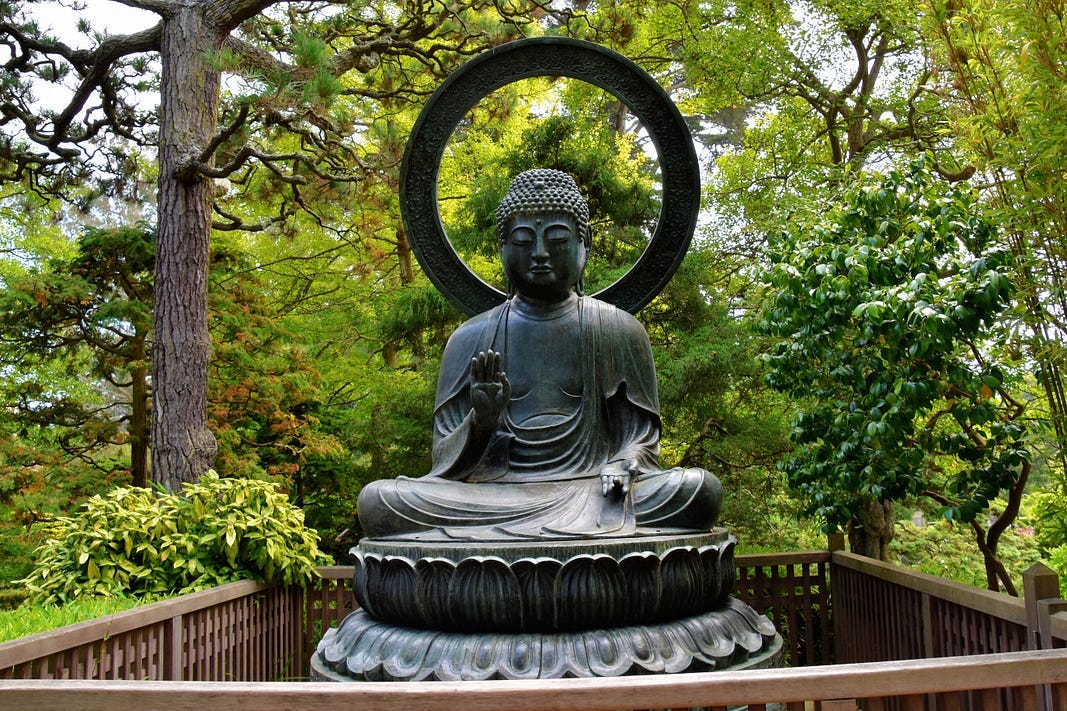Insights from a Prolific Zen Master: How to Find Your True Self
It's about discovering inner peace, and it's already within you

For the first fifty-five years of my life, my mind was filled with static. Thoughts clashed like dull swords, memories replayed on endless loops, and imagined futures felt like chasing the wind. I tried everything to end the noise and find inner peace; success, distraction, even numbing myself, but nothing truly worked.
Then I discovered Dzogchen: The Self-Perfected State. Reading it wasn’t like many other books that described long, narrow, difficult paths. It was more like a reminder from the universe that what I was seeking was more accessible than I knew.
It revealed a truth that changed me: the mind, in its essence, is already perfect.
About the author, a true master
Chögyal Namkhai Norbu (1938–2018) was a Tibetan Dzogchen master, scholar, and one of the first teachers to bring the ancient wisdom of Dzogchen to a global audience. Recognized as a reincarnate lama in childhood, he studied under some of the most respected Tibetan masters before leaving Tibet in the 1950s.
After settling in Italy, he became a professor of Tibetan and Mongolian studies at the University of Naples, where he combined profound scholarship with spiritual practice.
Namkhai Norbu founded the Dzogchen Community and spent decades teaching throughout the world, offering a direct introduction to the nature of mind (rigpa) to thousands of students. His writings, especially Dzogchen: The Self-Perfected State, remain among the most accessible and influential presentations of Dzogchen in the West.
He is remembered as a bridge between East and West, illuminating the path of self-liberation with clarity, warmth, and authenticity.
The Great Perfection
The profound teaching that changed my life is called Dzogchen. That means the “Great Perfection.” It explains that our awareness is pure, radiant, and whole. Peace isn’t something we must earn through endless striving or self-improvement. It isn’t waiting for us at the end of a long journey to a faraway ashram or temple.
Radical clarity, our true self, is here, now, always present. The noise only comes from not knowing, or worse, forgetting a truth with which we are born.
“When all our obstacles have been overcome, and we find ourselves in a state of total presence, the wisdom of enlightenment manifests spontaneously without limits, just like the infinite rays of the sun. The clouds have dissolved, and the sun is finally free to shine once again.” — Chögyal Namkhai Norbu
When I first read the book, I felt something shift. For the first time, I saw that I didn’t have to fight my thoughts. I didn’t need to fix myself. It was no longer necessary to sit for hours in an uncomfortable position, wondering why my mind raced as if I had stolen a car.
My true self was already untouched by the chaos in my mind, like a vast sky unbothered by passing storms. Therein lies the beauty of discovering our innate awareness.
This truth, the inner reality, our true self, is available to anyone who picks up the book and lets its words sink in. Some have found the same thing by sitting on a park bench in utter despair when struck by a flash of bright white, loving, and overwhelming light. Others find it with plant medicine, but that kind of transcendence can be fleeting.
Our true nature, awareness, is known as Rigpa
The book speaks of rigpa, the clear and open awareness that is our real nature. It is not hidden, but overlooked. To recognize rigpa is to return home, to rediscover the stillness and clarity that was there all along.
“Rigpa” refers to a form of pristine, non-conceptual awareness. It’s the pure, self-luminous knowing that is the fundamental ground of our being. It is not something to be constructed or attained; rather, it is what we are when layers of confusion (known in Dzogchen as ma rigpa) fall away.
When you rest in that awareness, the constant chatter begins to lose its hold. Thoughts still appear, life’s challenges still come, but they no longer define you. You see them as passing clouds. You, the open sky, remain clear and vast.
If I can find it, so can you
Dzogchen can help not only me, but anyone who reads it with an open mind and heart. Those of us trapped in the darkness of dogma and religious tradition won’t even bother to look. They will quickly dismiss it with contempt prior to reading the first page.
Dzogchen does not ask you to believe in a new philosophy or adopt a rigid practice. Instead, it invites you to look within and recognize what has always been there. And the fact is, this profound philosophy and way of self-discovery can fit well with any spiritual path you take.
Embrace and integrate it.
If you are weary of the noise in your own mind, tired of regretting the past, and feeling anxious about the future, consider buying and reading the book. If you long for a more profound peace than external success can give you, I encourage you to explore Dzogchen. Approach it not as a scholar chasing ideas, but as a seeker willing to be shown what is already true.
For me, this book marked the end of the endless war in my head. The fear, anxiety, and anger that used to consume me are gone. The silence I sought was not the silence of a conquered mind, but the recognition that no battle needed to be fought.
I discovered the path home to myself. So can you if you’re willing to search inside yourself.
I’m an author, mentor, and facilitator. Ask me how The Clarity S.H.I.F.T. Method™ empowers leaders and professionals to enhance communication, prevent conflicts, foster trust, and achieve alignment. Learn more at www.CliffordJones.com.


